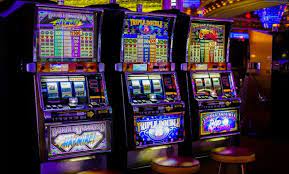Slot games such as Chilli Heat slot have become incredibly popular nowadays, and they are the most profitable games for online casinos. It’s no secret that these games are designed to be addictive, keeping people spinning the reels non-stop in a bid to hit the jackpot. This can lead to addiction and other gambling problems.
But how does the psychology behind slots work in practice? Well, let’s find out.
The Psychological Basics of Online Slot Games
Online casinos put a lot of effort into maintaining the engagement of slot players. With so much competition out there, every casino wants to be unique.
Slot games work under the same theory examined by an American psychologist, B.F Skinner, in the 1940s and 50s. He carried out his experiment with pigeons to demonstrate the power of operant conditioning. Skinner placed the birds in a box and offered them food on a lever. He found out that the pigeons would peck the lever more frequently when food was offered on a variable schedule rather than a fixed one. Online slots offer players awards and big prizes for playing, and that’s why they always keep playing.
The Role of Near Misses in the Psychology of Slot Games
Near misses are a common slot feature used to encourage future play. They are used to show you a close shot or near win, manipulating you into thinking that you were close to winning when actually you weren’t. This negatively impacts your play and can cause frustrations making you want to keep playing until you hit the jackpot.
You should always keep in mind that slots are games of chance, and there is nothing such as a “near shot”. It’s either you have won or lost.
The Impact of Slot Design on Player Behaviour
The design of online slot games can impact player psychology in many ways. For instance, flashing lights and incredible audio make slot games engaging and attractive. This can lead to an increased emotional connection, which can lead to increased gambling behaviour.
In addition, slot games come with different themes, mechanics and features and a possibility of winning big with small bets. All these are huge draws that keep you coming back for more.
The Role of Cognitive Dissonance in Online Slots
Cognitive dissonance is a psychological phenomenon that enables players to gamble despite the risks involved. For example, every slot machine has a theoretical RTP (return to player) percentage that tells how much, on average, you can expect to lose from every £100 wagered. Despite this figure proving to players that they can lose more on average; they still keep playing. This can lead to increased gambling behaviour, hence, addiction.
Slot games are amongst the most addictive forms of gambling yet so popular. The psychology behind online slot addiction plays a big role in keeping players engaged, as does the thrill of winning. Developers are now more focused on keeping you engaged, so psychology will continue to play its role in online slots.

























